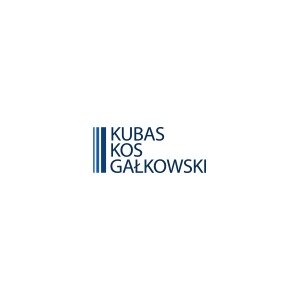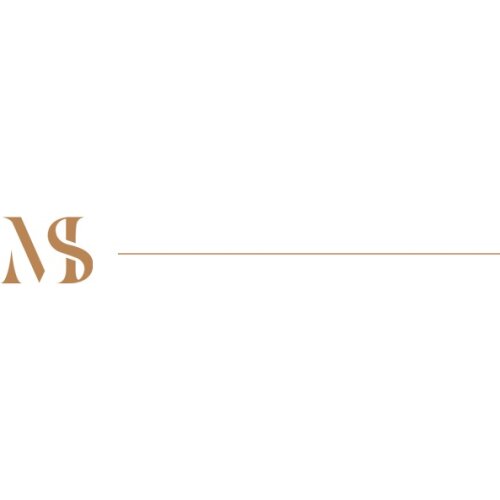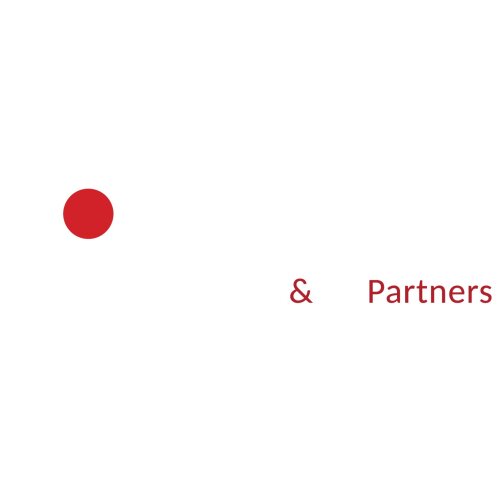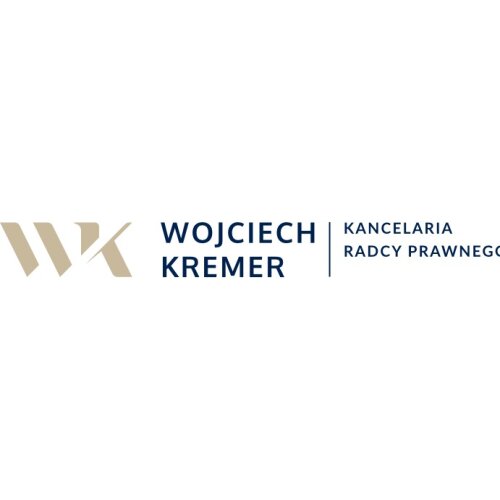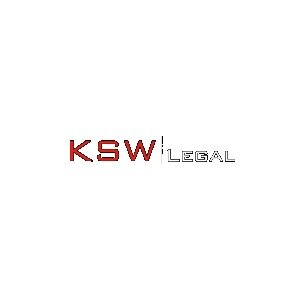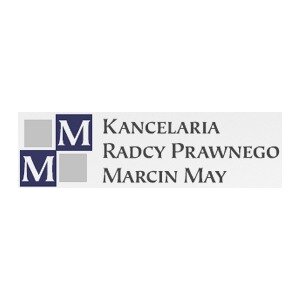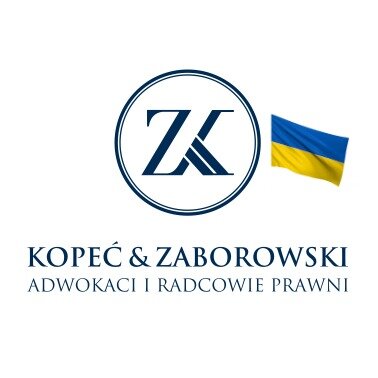Best Energy Regulatory Law Lawyers in Poland
Share your needs with us, get contacted by law firms.
Free. Takes 2 min.
Or refine your search by selecting a city:
List of the best lawyers in Poland
About Energy Regulatory Law in Poland
Energy Regulatory Law in Poland covers the rules, regulations, and legal frameworks that govern the production, transmission, distribution, and sale of energy. This field of law is mostly guided by the Energy Law Act and is regulated by Polish and European Union directives. The aim is to ensure energy market stability, protect consumers, encourage competition, and promote the use of renewable energy sources. The President of the Energy Regulatory Office (URE) is the main regulator responsible for implementing these laws and overseeing energy companies in Poland.
Why You May Need a Lawyer
There are several scenarios in which individuals, businesses, or organizations might require legal help in matters of Energy Regulatory Law. Common situations include:
- Setting up or licensing an energy company, power plant, or renewable energy facility
- Negotiating or contesting contracts for the supply, distribution, or sale of energy
- Addressing disputes over energy tariffs, pricing, or network connection terms
- Ensuring compliance with environmental, safety, or technical standards in the energy sector
- Participating in public tenders or auctions for renewable energy projects
- Handling administrative proceedings before the Energy Regulatory Office or appeals in courts
- Adapting business practices to changes in EU and Polish energy regulations
- Managing grid connection or access issues, including disputes with energy network operators
- Protecting consumer rights in relation to energy billing, service quality, or unfair practices
A lawyer specializing in Energy Regulatory Law can guide you through these complex matters and ensure you are compliant with current regulations.
Local Laws Overview
The regulatory landscape for energy in Poland is shaped by several key laws and policy instruments. The Energy Law Act of 1997 serves as the primary legal framework, regulating energy companies, consumer protection, licensing, tariff setting, and network operations. The Polish government aligns its energy policies closely with the European Union, particularly in the fields of renewable energy targets, carbon emissions reduction, and market liberalization.
Key aspects relevant to Energy Regulatory Law in Poland include:
- Licensing requirements for production, transmission, and trading of energy
- Tariff regulations and obligations to ensure non-discriminatory access to energy networks
- Support schemes for renewable energy producers under the Renewable Energy Sources (RES) Act
- Consumer rights and protections related to energy supply and disconnection procedures
- Network code requirements governing technical and operational standards
- Strict rules concerning reporting, transparency, and anti-monopoly provisions
- Penalties for non-compliance and procedures for administrative appeals
Frequently Asked Questions
What is the role of the Energy Regulatory Office (URE) in Poland?
The URE oversees the energy market in Poland, issues licenses, sets tariffs, ensures compliance, and protects consumer interests. It is also responsible for monitoring energy companies and resolving disputes.
Do I need a license to produce renewable energy for my own use?
Small-scale producers, such as households with photovoltaic panels up to a certain capacity, usually do not need a license but must notify the local electricity operator. For larger installations, licensing from the URE is required.
How are energy tariffs and prices regulated?
The URE approves tariffs proposed by energy companies to ensure they are fair and reflect actual costs. Some energy prices are market-based, while others, especially for households, may still be regulated.
What support mechanisms exist for renewable energy projects?
Support is available through auctions for renewable energy, feed-in tariffs, and investment subsidies. The RES Act governs these schemes and eligibility requirements.
Can foreign entities operate energy businesses in Poland?
Yes, foreign entities can operate in the Polish energy market but must comply with licensing and regulatory requirements like domestic companies.
What should I do if my energy supplier breaches the contract?
First, try resolving the issue directly with the supplier. If that does not work, you can file a complaint with the URE or seek legal action in civil courts.
Are there rules about connecting renewable energy sources to the grid?
Yes, detailed requirements exist regarding grid access, technical standards, and application procedures. Network operators are obliged to connect facilities that meet these standards unless valid technical reasons prevent it.
How are consumer rights protected in the energy market?
Consumers are protected by provisions on clear billing, guaranteed supply, the right to change suppliers, and procedures for complaint resolution. The URE and consumer advocacy offices enforce these rights.
What are the penalties for failing to comply with energy regulations?
Violations can result in administrative fines, orders to cease certain activities, license revocation, or civil and criminal liability, depending on the severity of the breach.
How can I participate in renewable energy auctions?
Interested parties must register and submit bids according to rules set by the URE. Legal guidance is recommended to navigate the requirements and deadlines.
Additional Resources
If you need more information on Energy Regulatory Law in Poland, consider these resources:
- Energy Regulatory Office (URE) - the main Polish regulatory authority in the energy sector
- Ministry of Climate and Environment - the government body responsible for energy policy
- Office of Competition and Consumer Protection (UOKiK) - overseeing consumer and competition law in the energy sector
- Chambers and associations such as the Polish Wind Energy Association or Polish Power Transmission and Distribution Association
- Public information bulletins and press releases from URE for updates on regulations, auctions, and public consultations
Next Steps
If you require legal advice or assistance related to Energy Regulatory Law in Poland, consider the following steps:
- Identify your specific issue or question (licensing, contract dispute, compliance, etc.)
- Gather all relevant documents such as contracts, correspondence, and official notifications
- Research potential legal professionals or law firms that specialize in Energy Regulatory Law
- Schedule an initial consultation to discuss your situation and options
- Cooperate with your lawyer in collecting evidence and preparing submissions as needed
- Stay informed about deadlines, hearings, or procedural requirements
- Always ensure your actions align with current regulations to avoid penalties
A specialized lawyer can provide valuable support in understanding your rights, navigating complex regulations, communicating with authorities, and representing your interests in disputes or negotiations.
Lawzana helps you find the best lawyers and law firms in Poland through a curated and pre-screened list of qualified legal professionals. Our platform offers rankings and detailed profiles of attorneys and law firms, allowing you to compare based on practice areas, including Energy Regulatory Law, experience, and client feedback.
Each profile includes a description of the firm's areas of practice, client reviews, team members and partners, year of establishment, spoken languages, office locations, contact information, social media presence, and any published articles or resources. Most firms on our platform speak English and are experienced in both local and international legal matters.
Get a quote from top-rated law firms in Poland — quickly, securely, and without unnecessary hassle.
Disclaimer:
The information provided on this page is for general informational purposes only and does not constitute legal advice. While we strive to ensure the accuracy and relevance of the content, legal information may change over time, and interpretations of the law can vary. You should always consult with a qualified legal professional for advice specific to your situation.
We disclaim all liability for actions taken or not taken based on the content of this page. If you believe any information is incorrect or outdated, please contact us, and we will review and update it where appropriate.
Browse energy regulatory law law firms by city in Poland
Refine your search by selecting a city.



